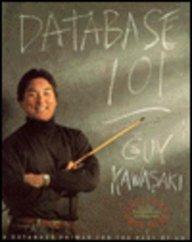Question
I have some code that uses a stack to convert from infix to postfix. what I want is to be able to check for errors
I have some code that uses a stack to convert from infix to postfix. what I want is to be able to check for errors and evaluate the postfix expression.
the errors to watch out for are:
I want the program to notice the errors and print out a string to stop the program for each error
- If input symbol is "(", push it into stack.
- If input operator is "+", "-", "*", or "/", repeatedly print the top of the stack to the output and pop the stack until the stack is either (i) empty ; (ii) a "(" is at the top of the stack; or (iii) a lower-precedence operator is at the top of the stack. Then push the input operator into the stack.
- If input operator is ")" and the last input processed was an operator, report an error. Otherwise, repeatedly print the top of the stack to the output and pop the stack until a "(" is at the top of the stack. Then pop the stack discarding the parenthesis. If the stack is emptied without a "(" being found, report error.
- If end of input is reached and the last input processed was an operator or "(", report an error. Otherwise print the top of the stack to the output and pop the stack until the stack is empty. If an "(" is found in the stack during this process, report error.
#include
#include
#include
using namespace std;
//Function to return precedence of operators
int prec(char c)
{
if(c == '^')
return 3;
else if(c == '*' || c == '/')
return 2;
else if(c == '+' || c == '-')
return 1;
else
return -1;
}
// The main function to convert infix expression
//to postfix expression
void infixToPostfix(string s)
{
std::stack st;
st.push('N');
int l = s.length();
string ns;
for(int i = 0; i < l; i++)
{
// If the scanned character is an operand, add it to output string.
if((s[i] >= 'a' && s[i] <= 'z')||(s[i] >= 'A' && s[i] <= 'Z'))
ns+=s[i];
// If the scanned character is an (, push it to the stack.
else if(s[i] == '(')
st.push('(');
// If the scanned character is an ), pop and to output string from the stack
// until an ( is encountered.
else if(s[i] == ')')
{
while(st.top() != 'N' && st.top() != '(')
{
char c = st.top();
st.pop();
ns += c;
}
if(st.top() == '(')
{
char c = st.top();
st.pop();
}
}
//If an operator is scanned
else{
while(st.top() != 'N' && prec(s[i]) <= prec(st.top()))
{
char c = st.top();
st.pop();
ns += c;
}
st.push(s[i]);
}
}
//Pop all the remaining elements from the stack
while(st.top() != 'N')
{
char c = st.top();
st.pop();
ns += c;
}
cout << ns << endl;
}
//Driver program to test above functions
int main()
{
string exp = "a+b*(c^d-e)^(f+g*h)-i";
infixToPostfix(exp);
return 0;
}
// This code is contributed by Gautam Singh
Step by Step Solution
There are 3 Steps involved in it
Step: 1

Get Instant Access to Expert-Tailored Solutions
See step-by-step solutions with expert insights and AI powered tools for academic success
Step: 2

Step: 3

Ace Your Homework with AI
Get the answers you need in no time with our AI-driven, step-by-step assistance
Get Started


